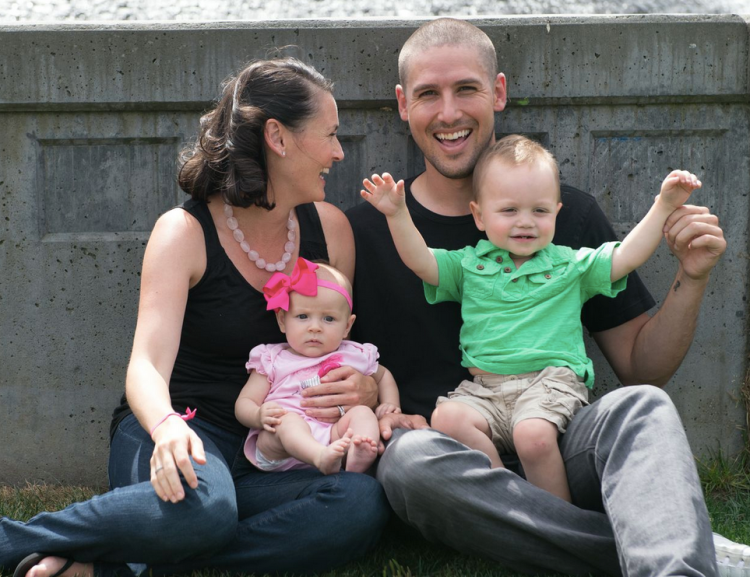You may have caught the article by my friend and co-founder Matt Ehrlichman last month, titled “My 32-year-old co-founder has a brain tumor — seriously?”
To set the record straight, I’m 33 now, not quite old enough to start lying about my age, but I probably wouldn’t get any grief for it if I did.
When you have brain cancer, people tend to cut you more slack.
The nightmare started April 19th, 2013. After months of going to the doctor for a self-diagnosed sinus infection, I got an MRI. The doctor called me as I was on my way back to the office. I was picking up sandwiches from a local sub shop for the team (we do Friday lunches). I asked the doctor to hold on as I pulled into a parking spot. “Giant brain tumor… posterior fossa… ependymoma…” — blankness.
In a state of shock, I hung up the phone, went into the shop, picked up the sandwiches and headed back to Porch headquarters (which, in true startup form, was at that time in Matt’s basement).
I’m a fairly expressionless guy and I’m pretty good at hiding my emotions. Matt, however, picked up on it the second I walked into the room.
“What’s wrong?”
“Can’t talk, gotta go.”
I went home to tell my wife, which was and is absolutely the single lowest point of my life. I had only a slice of information I could recall from the phone call with my doctor, and that translated to “I’m dying and I have no idea how much time I have left.”
Did I mention she was 39 weeks pregnant at the time? Twelve hours later, with no food and no sleep, she gave birth to our daughter.
***
When you come close to dying, and survive, a lot of things change. Decisions become more black and white, trivial problems disappear, time becomes precious. Here’s how mine changed:
Do what you love – We’ve all heard it before, don’t do something unless you’re passionate about it. Right. Boring. How about do what you would do if you had five years to live?
Despite Google being a great company, if I had still been working there when I was diagnosed, I would have resigned. Same with Expedia. While those companies both do great things, I wasn’t going to play a pivotal role in driving happiness in people’s lives as long as I was there.
This is what’s different for me at Porch: I feel like I’m working towards changing people’s lives for the better. If you’re not doing that, what are you doing?
Be your whole self – At Google, I took a training session by Fred Kofman, author of Conscious Business. My biggest takeaway was learning how to be myself at work, not some image of who I thought I should be.
Now, distinguishing between personal and professional life seems stupid — it’s all just life. Worrying about a promotion, never being fully honest for fear of the repercussions, not leaving the office before a certain time – these are all things that used to describe me. None of them ever made me feel happy or fulfilled.
Be the change – Does it bug you when people are late to meetings? Don’t be late. You think your company has an email problem? Pick up the phone. Don’t complain about it, don’t even talk about it, just do it. You’ll be surprised how effective it can be.
Eliminate negativity – This one is still hard for me. Going through recovery, more often than not, I’ve had friends step up and be there for me (especially my big network of Googlers and Expedia folk – thanks, you guys rock). But some friends have also disappeared.
Jim Collins wrote “start by getting the right people on the bus, the wrong people off the bus, and the right people in the right seats.”
Sometimes getting off the bus is the best thing for everyone. Don’t be afraid to have honest conversations with people. If people aren’t down with your mission, whether it’s beating cancer or building a great company, it’s time to move on.
***
Coming out of surgery, I could barely move. It was like being underwater — if water’s density was 10x what it normally is. If I wanted to scratch my face it would take me 10 seconds to lift my hand to my face. Suffice it to say, I had plenty of time to think.
I now know exactly what I want to do with my life. I want to grow old with my wife. I want to walk my daughter down the aisle. I want to teach both my kids how to be good people. And for the bills that need to be paid, I’ll be building something great that makes a difference in people’s lives.
I might be dying, but I’m also living.
Ronnie Castro is a co-founder of Porch, where you can get inspired by home projects your neighbors have completed, see what home projects will cost, and find the service professionals your neighbors and friends recommend. Previous to Porch, Ronnie built the Optimization team at Google and ran part of Global Paid Search at Expedia. Ronnie lives in Seattle, WA.
He’ll be at the Seattle Brain Cancer Walk on September 21, 2013 walking with fellow survivors, family and friends and invites you all to participate.
VentureBeat's mission is to be a digital town square for technical decision-makers to gain knowledge about transformative enterprise technology and transact. Learn More

